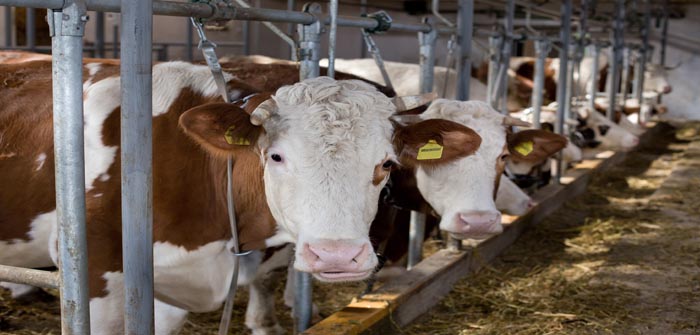Farmers are being reminded of the importance of treating first and second season grazing at housing for gutworms and all infected cattle for fluke to prevent problems getting out of control and causing production losses.
Vet, Maarten Boers of The Livestock Partnership in West Sussex, said using a knockout treatment for gutworms at housing for first season grazing cattle is important. This is because of their lack of immunity to kill off the infective larvae, which can go on to have catastrophic consequences on their health and production.
He said: “First and sometimes second season grazing animals don’t have immunity to fight off worm infections in the same way mature animals can. If you don’t treat them effectively at housing, then you will see production losses.”
He also recommends farmers test for fluke and if in any doubt treat all ages of stock but stresses the importance of using the correct product.
He added: “We still come across problems where farmers have used the wrong flukicide and don’t solve the problem because, for example, it only kills mature larvae, when in fact it is the immature larvae they are trying to kill. Always speak to your health care provider about which product is best.”
Mr Boers said he had seen some bad cases of lungworm recently and urged farmers to be aware of the symptoms due to the speed in which the problem can escalate.
He said: “It is a late summer and early autumn problem and is mostly seen in weaned animals. We saw a big outbreak of lungworm where some beef yearlings were lost as they were treated too late. Lungworm can strike very quickly and is mostly seen in weaned animals that are grazed as a mob together.
“Where calves are grazed at foot, they build up immunity slowly as their mother essentially acts as a hoover so they are only exposed to small volumes of infective larvae.”
The best method of prevention for lungworm is to vaccinate youngstock, by using a live vaccine. This is given as two separate doses at six weeks and then two weeks prior to turn out.
“If lungworm is considered an issue on your farm, then it may be advisable to vaccinate prior to the second year at grass,” he said.
Reducing stress at housing
Transition into housing can be a stressful time for first season grazing animals with a dietary change, weaning and possible respiratory disease all having an impact. If you then challenge them with a parasite burden the knock-on effects can be significant.
Zoetis vet Dr Dave Armstrong said for a successful housing time, both internal and external parasites must be accounted for.
Dr Armstrong said unless cattle are still covered by a previous treatment, animals should be cleaned out with a persistent product prior to housing giving them enough time for their immune system to recover so they have a smooth transition.
He said: “Using a wormer post housing has very limited value, worms suppress appetite, lowering the chances of successful transition to winter diet meaning a growth rate check at housing – do not compromise on housing worm control.”


